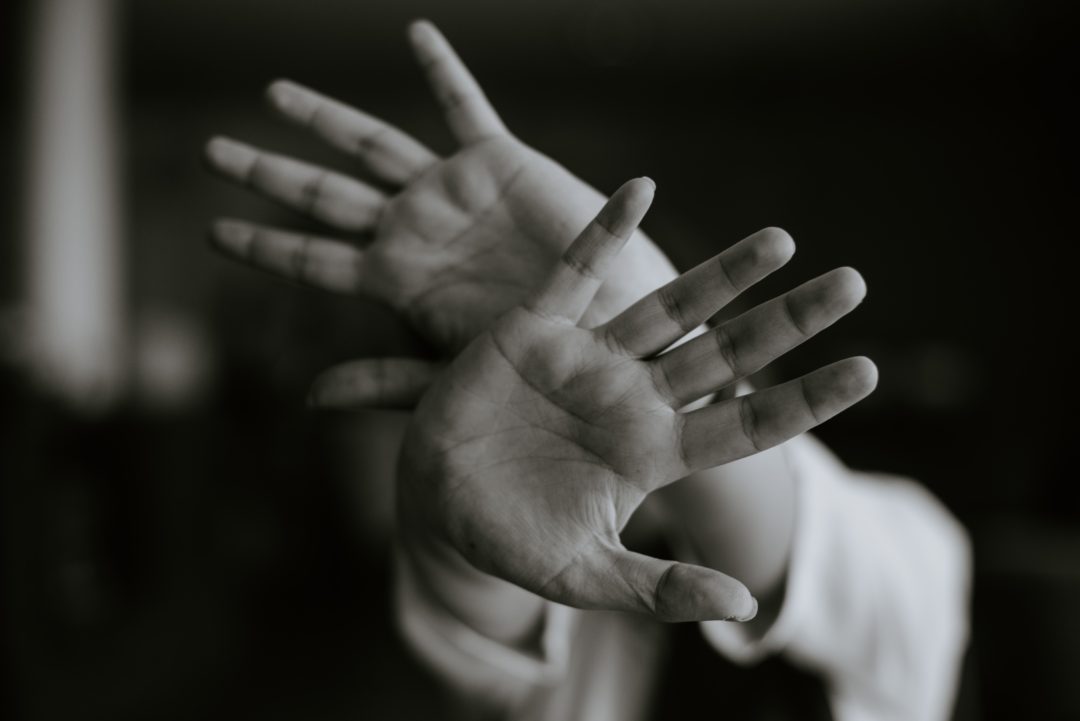Over the past two weeks I’ve been having a difficult time with fear.
I’m in the process of making some fairly big life decisions, which have been long overdue and will lead me down some unexplored paths. Since the day that I made one decision in particular, fear has decided to launch a full-on assault. As a result, I’ve had constant anxiety and self-doubt.
I didn’t recognise this as fear to begin with, and that’s because just like other negative emotions, such as sadness, fear loves to masquerade as other things, like anger or irritability. Mine was initially hidden beneath a low mood and general confusion, until one day seemingly out of nowhere I broke down into tears while saying the words “I’m scared. No, no. I’m PETRIFIED.”
So. Much. Fun.
A normal (and yet dreaded) emotion
Research tells us that fear is hardwired in our brains and is a totally normal function. Back when we were all living in the wilderness, it helped us to navigate dangers such as the sound of a lion about to make a move from the bushes. When fear kicks in, we go into fight or flight mode in order to eradicate the perceived threat.
The issue is, fear is divided into two responses: biochemical and emotional. The former is universal while the latter is more individual. So, although the physical reaction to, let’s say, a bungee jump, will be the same in two people, fear can be perceived as either positive or negative depending on the person and the context. This means that our fear response is shaped a lot by our individual life experiences.
My relationship with fear
If I’m honest, I’m quite surprised by how much control fear seems to have over me at the moment. I’m not a stranger to big life changes; I first moved to Dubai with meagre savings and no job, I quit a well-paid job with no safety net to go travelling the world, and I decided to go freelance for four years (the very definition of fear-inducing uncertainty). And yet, when I look back over those big decisions, I don’t recall being as afraid as I am now. Either I’m remembering wrongly – after all, we do have the amazing ability to look back over stressful times and think of them as “not that bad” – or something has changed.
And I guess that change has something to do with the trauma I went through four years ago. Trauma heightens our body’s awareness to perceived threats; it’s why people who’ve been through something horrific are easily startled. (This is the very basic explanation of how this works. If you’re interested in learning more about life after trauma, The Body Keeps Score: Mind, Brain and Body in the Transformation of Trauma by Bessel Van Der Kolk is a fantastic resource. I’m actually reading it at the moment).
So, I now find myself scared of what’s coming even though my intuition is telling me that this is the right path to follow. I don’t take big decisions lightly, so it’s taken me months upon months of deliberation to come to these conclusions. And yet fear is still trying to keep me stuck.
The thing with fear is that 99 per cent of the time it’s a false alarm – it’s warning you of a danger that doesn’t even exist and worst-case scenarios that most probably will never happen.
The good news is that I know that there are various things I can do to help me through difficult times and emotions. Here’s what’s helping me handle this current bout of fear and anxiety – hopefully it will help you too if you’re going through something similar.
Doing yoga
It’s extremely tempting to ‘hide’ away when you’re feeling overwhelmed by your emotions (perhaps that’s flight in action), however, physical activity really helps to alleviate anxiety and stress. Yoga is my go-to exercise as it helps me to feel grounded and extremely present. Find what works for you and don’t let your emotions stop you – you will feel so much better after 30 minutes of physical activity.
Meditating
Again, I have a tendency to shy away from meditation when I need it the most, and I guess that’s because it’s not easy to sit quietly with difficult emotions – we prefer to numb them with Netflix and social media instead (that’s been happening a lot lately, I must admit). But I’ve had days (usually during the weekend when I have too much time to think) when I’ve felt my thoughts spiraling and I’ve meditated for at least 15 minutes in order to stop it from getting worse.
I use Insight Timer, a free app that has hundreds and hundreds of great guided meditations.
Listing out my fears (and why all will be okay)
As I mentioned above, fear loves to make you think of the worst-case scenarios and causes you to ruminate over them until you become paralysed with indecision.
The truth is there’s risk in almost everything that we do – even those daily tasks that we do on autopilot. For example, you could be walking to work and get hit by a bus one morning. The likelihood? Extremely slim, but if we let fear dictate our lives we’d never leave the house again.
So, I listed out all my fears and worst case scenarios in one column, and in the second column I wrote out why (and how) I can handle them if they happen. It really helped to see the fears on paper as they seemed so much more manageable.
Journalling
I do this every day regardless of how I’m feeling as it enables me to tune into what’s going on in my head. When I’m feeling stressed, I have a tendency to want to shy away from my journal (just like I shy away from meditation), but I remind myself that this is when I need it the most and try to stick to my daily routine. Writing my thoughts out helps me to realise that, actually, most things are manageable and not as bad as they seem.
Writing a letter of self-compassion to myself has also been helpful exercise.
Watching motivational TEDx talks
A week or so ago I woke up with terrible anxiety (which was a barrel of laughs). An hour passed and I still felt the same, so I decided to look for things that would help me feel better.
A quick search on TEDx’s website led me to Tim Ferris’ talk on why you should define your fears instead of your goals when you’re afraid of doing something. I also found this talk by Jia Jiang in which he chronicles the time he sought out rejection for 100 days, desensitising himself to the pain and shame it often brings.
I’d recommend both these talks to anyone who’s suffering from anxiety and fear due to life-changing decisions. They both helped me to see that pushing ourselves out of our comfort zones is absolutely necessary in order to grow.
Five positive thoughts
And finally, I’ve scheduled my phone to remind me three times a day to write down five positive thoughts. This is helping me to keep looking for the good no matter how much discomfort I might be feeling due to anxiety.




